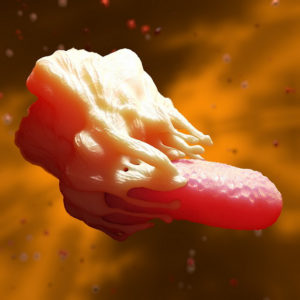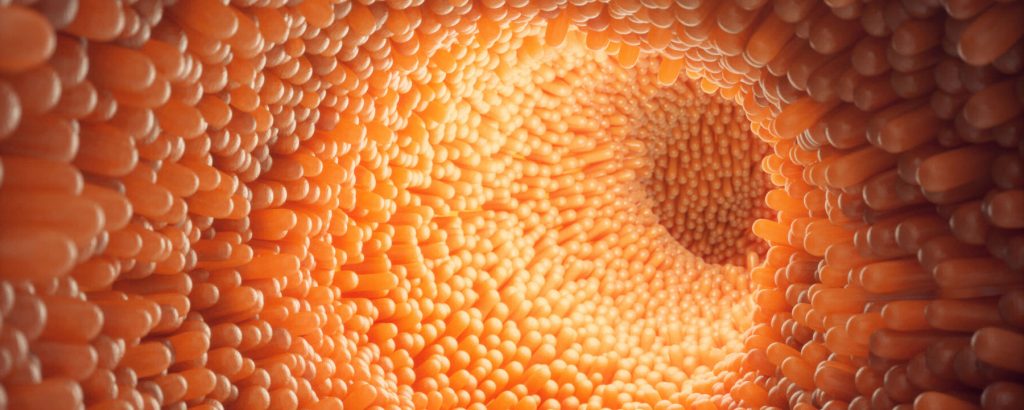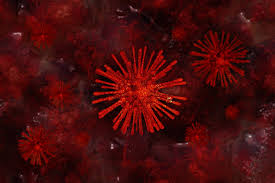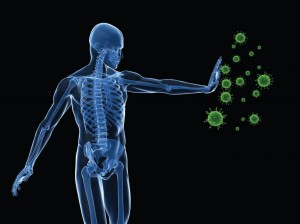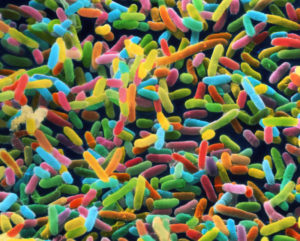Mounting evidence in animal models, as well as correlative studies in humans, indicate that the microbes present in the gut can shape immune responses. In a study published today (September 5) in Cell, researchers have confirmed that link in humans. They showed that, for people who hadn’t had a flu shot or hadn’t caught the bug in the previous three years, a course of antibiotics just before a flu shot led to fewer antibodies produced in response to the immunization than among study participants who didn’t take antibiotics.
“It’s really important to do these kinds of studies in human because there’s a lot of work that’s been done in animal models,” says Dan Littman, who studies microbiota-immune system interactions at New York University School of Medicine and did not participate in the work. “While those are very valuable—particularly for understanding mechanistic aspects of how the immune system responds to microbiota, to vaccination, to infections of pathogenic microbes—there are clearly going to be differences in human, and we know very little about how humans do respond.”
In 2011, Bali Pulendran, an immunologist who is now at Stanford University, and colleagues monitored gene expression in people who received the seasonal influenza vaccine in order to explore how the flu shot works and why it varies in efficacy in different people. While most of the changes made sense, one stuck out: an increased activity of the gene encoding a receptor in the innate immune system that recognizes the bacterial protein flagellin, the core part of flagella that many microbes use to move. This indicated that perhaps the immune system’s recognition of bacteria—potentially the gut microbes—was somehow playing a role in the its response to the vaccine.
Then in 2014, the researchers gave mouse knockouts of the receptor for bacterial flagellin the flu shot. These mice made fewer antibodies to the flu than their littermate controls. The research team suspected that this reduction was mediated by the receptor sensing flagellin present in the animals’ gut microbes, so in separate experiments they depleted mice’s microbiota with antibiotics before vaccination and gave germ-free mice the vaccine. Both groups of mice did not respond as well to the flu vaccine as controls that had their microbiomes intact. They concluded that the gut microbiota plays a role in generating an optimal antibody response against the flu shot, and the next step was to bring the work back to humans.
“There’s a lot of beautiful mechanistic work in mice, and there’s a lot of elegant work in humans showing correlations between particular species of bacteria and susceptibility to allergic inflammation, cancer, or other inflammatory disorders, but precious little causal evidence in humans in which there has been a deliberate and intentional perturbation of the microbiome and then a consequent examination of what this does to human physiology—not just the physiology of the immune system—but any aspect of human physiology,” Pulendran tells The Scientist.
In the current study, the researchers designed a Phase 1 clinical trial to test the influence of gut microbes on flu vaccine–induced immunity. First, they treated 11 healthy adults with broad-spectrum antibiotics—metronidazole, neomycin, and vancomycin—for five days. On day four of the trial, their subjects and 11 untreated controls received the seasonal influenza vaccine. The people who got antibiotics had a corresponding drop in gut microbe diversity and bacterial load. But when the researchers monitored antibody generation in response to the vaccine, they didn’t see much of a difference in the treated and untreated groups…
